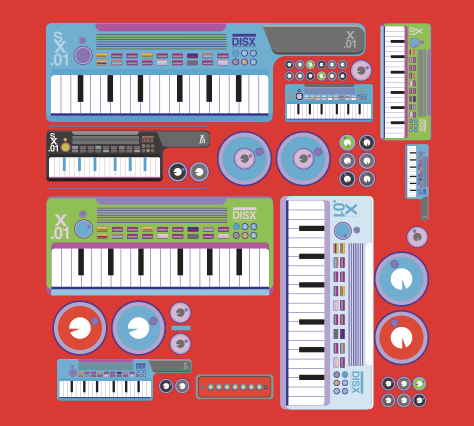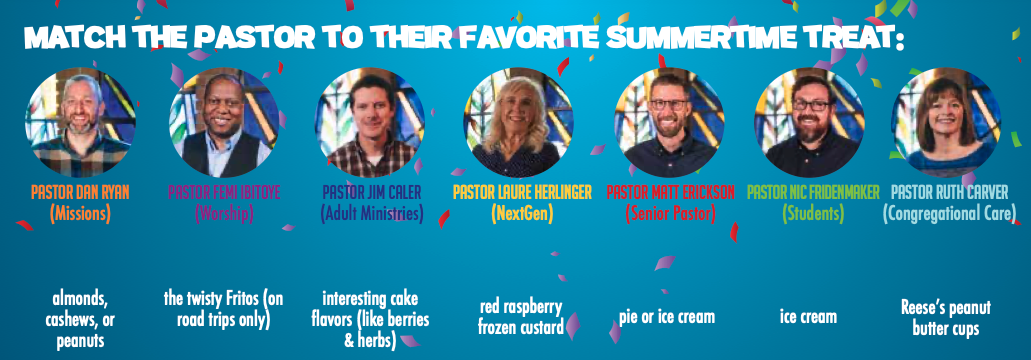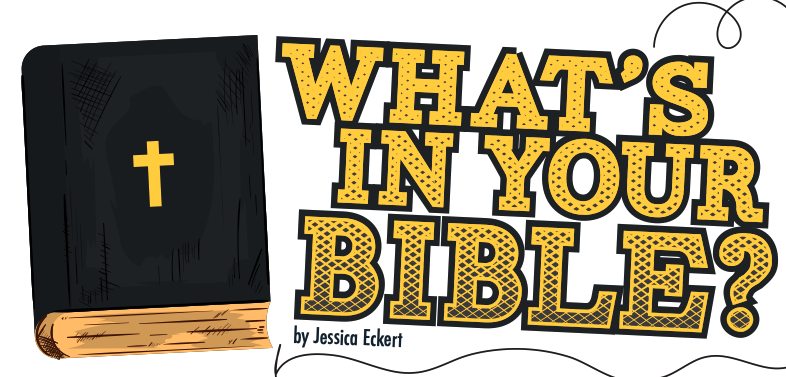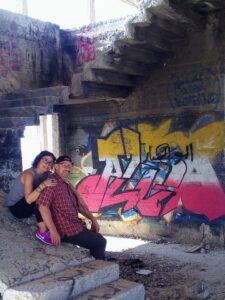Although they are not physically present in Milwaukee for most of the year, Marshall and Terri Plant are a big part of what makes Eastbrook, Eastbrook. They joined the church in 1985 and spent 10 years worshipping here before moving to the Middle East as missionaries, what we here at Eastbrook call “field workers.” They have served in Egypt, Morocco, and most recently Jerusalem, where they have lived for the past 10 years. Stationed in the Holy Land, they have witnessed many modern-day pilgrims make the journey to meet with God. Let’s help make our big church feel smaller as we get to know Marshall and Terri, and hear their reflections on pilgrimage.
What called you to do the work that you do?
TERRI: We met at Moody [Bible Institute], where every year the school hosted a Missions week —people came and told stories of what was going on in the world. I could not contain myself in all of those meetings, it really broke my heart to hear all these stories of other places in the world, and it opened my mind and my heart to [go out].
MARSHALL: It was the first time I knew people hadn’t heard the Gospel.
What have you learned in the places you have served?
MARSHALL: It has confirmed that this [Earth] is not our home. We are all pilgrims, rooted elsewhere. That’s a big advantage of living in a place that’s not your own — it’s not our home, we’re just passing through. It helps us focus on the work and helps us see: this doesn’t last.
TERRI: We had to leave Egypt and Morocco abruptly, we had to basically sell everything and give things away and start fresh again. I think most Americans don’t have that opportunity, they spend most of their life in one or two places and just collect.
MARSHALL: I’ve also learned that it’s exciting, but the thrill of the adventure wears o ff. But the advantage is spiritual. It’s Him who makes it worthwhile.
With a physical pilgrimage, there’s the thrill of getting started, thinking about your endpoint. And then two weeks in, you get blisters, it’s hot, you’re eating the same thing every day. Does that equate to what you’ve experienced, or what you’ve observed of pilgrims you encounter traveling to the Holy Land?
MARSHALL: A pilgrimage has a start and an end, and then you going to go back home. It’s just a temporary thing to purge you, to reboot. Three times a year, Jews were expected to go to Jerusalem from wherever they were. The walk itself was a good cleansing— getting there to reaffirm what they believe and what’s important in life. But it was also a sacrifice. You had to leave your work, drag your kids. I think of the people from Capernaum or Galilee: fish was a big part of their diet [living by the sea]. They’d go to Jerusalem and be like, ‘where’s the fish?!’
TERRI: Some pilgrims have psalms of ascent they recite as they walk that they had memorized over years and years. It’s so intentional that they are on the journey, making it for the Lord. I think sometimes we totally miss this on this “life journey” that we’re on. We can make it about us, or our stuff, our jobs, our identity as a partner, a parent, or whatever else we may be.
How has witnessing this impacted you as believers?
MARSHALL: The whole world comes to Jerusalem, you can hear every language. The more we’re exposed to diff erent ideologies and religions, we are more firm than ever in the Gospel; that the Word of God is for us; that Jesus Christ became a man, sent from God, who went to the Cross for our sins and rose again. Our confidence has just grown.
TERRI: I also feel like, even though we can see people coming from di fferent backgrounds and faiths, if they’re actually really seeking the One, God’s going to meet them in some way.
MARSHALL: I’ve heard that from my friends, the tour guides. Romans 10 says, ‘Unless someone goes, how will they hear?’ It sounds like no matter where people are coming from or why, sacrifice is consistent along their pilgrimage.
For people who read this at Eastbrook, in the city of Milwaukee, how can they “do pilgrimage” without actually physically going to the Holy Land? What actions translate wherever you are?
MARSHALL: It doesn’t matter where you are, you’re doing the work for Him. We just happen to live in Jerusalem, but the things we give our life to are the exact same things we would do here in Milwaukee. We would have an Afghan woman live with us. We would go to Friday night international group. We would go to the southside center [ICC] and tutor people.
TERRI: Pilgrimage costs you something. I do think we Americans have a bit of a problem with being able to give up things or be uncomfortable because our life is built around our own personal comfort. Self-preservation has become so much a part of our culture — but it goes against pilgrimage in a way, because pilgrimage is about leaving all the comfort and security and seeking something bigger than yourself. I think the goal is to set ourselves with our focus on something else, something bigger, and go in that direction. ■
CHOOSE Your Mission at Eastbrook
One of Eastbrook’s core values is to reach out beyond ourselves through engagement in our neighborhood, city, and world. You can support field workers like Marshall and Terri and answer that call to service in a number of ways throughout the year:
- PRAY FOR OUR FIELD WORKERS: Petition the Lord on your own, or participate in either Missions Prayer Class (Sundays at 9:30 am in Fellowship Hall) or Women’s Missions Prayer (Thursdays at 9 am on Zoom) for a chance to pray in community.
- GIVE TO THE MISSIONS FUND: This designated fund provides finances to support Eastbrook field workers and programs across the globe. Place your off ering in the boxes during worship services, or give online at eastbrook.org/giving.
- PARTICIPATE IN MISSIONSFEST 2022: This week-long focus on how God is at work in our church kicks o ff Sunday, October 9 with events running through Sunday, October 16 —including many regularly scheduled groups that will take on a special, missions-focused message. Check out a full schedule at eastbrook.org/missionsfest.
- VOLUNTEER LOCALLY: Community members are invited to serve at our Bread of Healing Clinic, Food Pantry, and International Community Center. To learn more, contact Dan Ryan, Okumu, or Jim Dressner. For a full listing of Missions events and service opportunities, check out the most recent Fall 2022 Connect/Grow/Serve brochure.
Recommended Posts

Summer Mixtapes
June 7, 2024

Pastors: They’re Just Like Us!
June 7, 2024

What’s in Your Bible?
June 7, 2024



